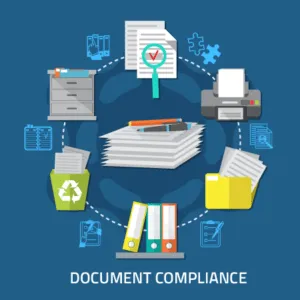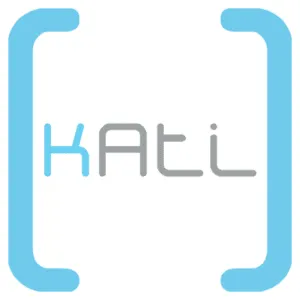We talk about document compliance, also called compliance. We all know that you are a key factor in the current activities and success of a company, but have you ever wondered why? The fact that corporate compliance has preventive functions to protect your business within the framework of regulations in your sector and in risk management is not in question. But let’s go further.
Houston, we have a problem. The problem is that continuing to think of compliance as a series of requirements may work in the short term but the risk, concrete, is to relegate it to a simple bureaucratic fact. When the opposite is true. The issue of compliance can indeed must trigger an organizational process that leads to a new way of thinking (and acting) for the defense of the business and its development.
It is not only the set of processes and activities that a company puts in place to comply with national and regional laws, regulations and internal rules of the organization: putting corporate compliance at the center is activating an active control, Constant and global on its business. Throughout the entire personnel chain, from management to suppliers.
Trust in suppliers is crucial. But we can control?
 In an increasingly fast and competitive global market, companies cannot help but have a large number of suppliers to obtain the products and services needed for their business, from raw materials to finished products. As a result, suppliers not only play a key role in the success of a company but the choice of suppliers is decisive. It takes a few inadequate suppliers to seriously jeopardize the entire business.
In an increasingly fast and competitive global market, companies cannot help but have a large number of suppliers to obtain the products and services needed for their business, from raw materials to finished products. As a result, suppliers not only play a key role in the success of a company but the choice of suppliers is decisive. It takes a few inadequate suppliers to seriously jeopardize the entire business.
It is therefore very important to establish criteria and procedures for which suppliers are required to follow all the regulations and standards. To ensure the safety of both products and end users. This is where document compliance comes in, the process of verifying that your suppliers have the necessary documentation, and always up to date, to demonstrate that they are operating in accordance with relevant regulations and standards. We are talking about certificates, licences, test reports and other similar documents. Durc, Duvri, Durf, compulsory insurance and many other obligations.
Protection. Reduction of risk. Reputation.
Protecting the consumer.To say that the consumer is at the center of a company’s thoughts is not rhetorical, it is a fundamental step. In some industrial sectors the risk is higher, and protecting consumers from potentially dangerous products is crucial. In many sectors, small deviations from standards can have serious consequences. Ensuring that all suppliers follow relevant regulations and standards is to comply with document compliance and do business at its best.
Reduction of risk.If zero risk does not exist, document compliance helps to minimize liability risk for companies. By verifying that suppliers operate in accordance with regulations and standards, companies can demonstrate – even at their legal location – that they have taken all the necessary measures to ensure the safety of their products. Does it make sense to invest so much money in security and not have a digital tracking and archiving system for document compliance processes? No, it doesn’t make sense.
Our reputation as the best ally.Jeff Bezos says the reputation is that you are talked about when you leave the room. The reputation of our company is not what we think, it’s what others think. Improving your reputation is about demonstrating a commitment to safety and quality by simplifying operations: document compliance helps streamline operations, reduces repeated inspections and audits. Documentation needed to hand, suppliers can be checked easily and quickly. Reducing the time and resources needed for compliance checks means speeding up work, having everything tracked and available on the web application.
Whether document compliance is a legal requirement.
In many industries, document compliance is a legal requirement. By ensuring that suppliers follow all relevant regulations and standards, companies can avoid costly penalties and fines for non-compliance. In conclusion, document compliance is a key component to ensure product and end-user safety. By ensuring that suppliers have the necessary documentation, the company can minimise risk, improve its reputation, streamline operations and ensure compliance with regulations. Management, purchasing offices, management control, RSPP, security officers: all the company figures who interact with suppliers have the certainty that the suppliers are operating in a safe and compliant way.
Kati is the solution.
 KATI is the web-based software designed and developed exclusively for document compliance. Accessible in real time from any Internet location, KATI tracks and manages all deadlines and certifications of those who have physical access to production sites (factories and production sites), validating the compliance of the supplier company and its workers. It is responsive, customizable according to the customer’s requests, can dialogue with other management software (e.g.: SAP), guarantees different levels of user privileges. Reducing the risk of penalties, collecting documents and checking that they are complete. KATI is agility, clarity, completeness of data, corporate responsibility.
KATI is the web-based software designed and developed exclusively for document compliance. Accessible in real time from any Internet location, KATI tracks and manages all deadlines and certifications of those who have physical access to production sites (factories and production sites), validating the compliance of the supplier company and its workers. It is responsive, customizable according to the customer’s requests, can dialogue with other management software (e.g.: SAP), guarantees different levels of user privileges. Reducing the risk of penalties, collecting documents and checking that they are complete. KATI is agility, clarity, completeness of data, corporate responsibility.
If you want to know more CONTACT US






